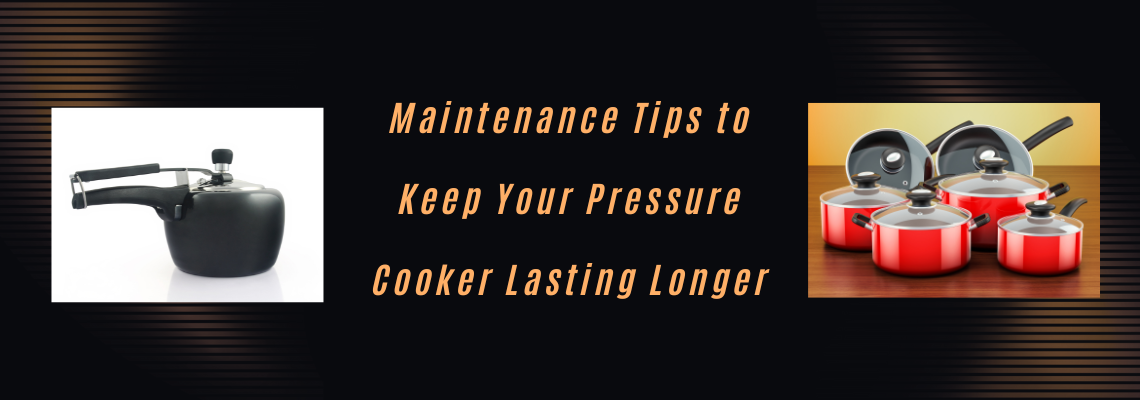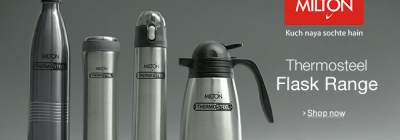
Maintenance Tips to Keep Your Pressure Cooker Lasting Longer
A pressure cooker is a valuable kitchen tool that helps you cook meals quickly and efficiently. To ensure that your pressure cooker continues to perform at its best and lasts for many years, regular maintenance is essential. Taking proper care of your cooker will prevent wear and tear, improve its efficiency, and ultimately save you money by extending its lifespan. In this article, we’ll explore some essential tips for maintaining your pressure cooker.
1. Clean Your Pressure Cooker Regularly
One of the most important maintenance tasks is regular cleaning. After each use, ensure that your pressure cooker is cleaned thoroughly to prevent food residue buildup, which can affect the cooker’s performance over time. Clean both the exterior and interior, paying special attention to the sealing ring, pressure valve, and the lid. If food particles are left behind, they can cause clogging or damage the cooker.
To clean your pressure cooker, wash it with warm water and mild dish soap. Avoid using abrasive scrubbers or harsh chemicals, as they can scratch and damage the surface. Regularly cleaning your cooker will help maintain its appearance and functionality.
2. Check the Sealing Ring and Pressure Valve
The sealing ring is one of the most vital parts of a pressure cooker. It ensures that the cooker remains airtight, allowing it to maintain the necessary pressure for cooking. Over time, the sealing ring can wear out or become damaged, leading to leaks or poor performance. To keep your cooker working properly, inspect the sealing ring regularly for cracks or signs of wear. If it is damaged, replace it with a new one to avoid cooking issues.
Additionally, check the pressure valve periodically to ensure it is not clogged or blocked. A blocked valve can prevent the pressure cooker from reaching the correct pressure, which affects cooking times and results in undercooked food. Clean the valve with warm water and a soft brush to keep it functioning properly.
3. Avoid Overfilling Your Pressure Cooker
Overfilling your pressure cooker can lead to accidents and reduce its effectiveness. The cooker needs space to build up pressure, and overfilling can prevent the proper buildup, leading to uneven cooking or even the lid being forced open. As a general rule, do not fill the cooker more than two-thirds full when cooking most foods. For foods that expand during cooking, like grains or beans, do not fill the cooker more than halfway. This ensures that the pressure cooker functions properly and safely.
4. Store Your Pressure Cooker Properly
Proper storage of your pressure cooker is just as important as regular cleaning. After each use, make sure the cooker is completely dry before storing it. Leaving moisture in the cooker can lead to rust or the growth of bacteria. If possible, store the lid separately from the body of the pressure cooker to prevent the sealing ring from becoming deformed. Keep your cooker in a dry place away from direct sunlight to avoid any potential damage.
5. Use the Correct Utensils and Avoid High Heat
To avoid damaging the interior of your pressure cooker, always use non-metallic utensils. Metal spoons or forks can scratch and damage the cooking surface. Opt for silicone, wooden, or plastic utensils instead. Additionally, avoid using high heat for long periods. While pressure cookers can handle high temperatures, using moderate heat ensures the longevity of the materials and prevents overheating or warping.
Conclusion
By following these simple maintenance tips, you can ensure that your pressure cooker continues to perform optimally for years to come. Regular cleaning, checking essential parts like the sealing ring and pressure valve, avoiding overfilling, and storing the cooker properly are all key to maintaining your cooker’s efficiency and extending its life. Proper care will not only save you money on repairs or replacements but also allow you to continue cooking healthy and delicious meals without any issues.
To dive deeper into the health advantages of pressure cooking, consider reading the article Why Pressure Cookers are the Secret to Healthy Cooking. This resource explores how pressure cooking preserves nutrients, enhances flavors, and contributes to a healthier lifestyle.
FAQs
1. How often should I clean my pressure cooker?
It is recommended to clean your pressure cooker after every use. Regular cleaning prevents food buildup, keeps the cooker in good condition, and ensures better performance.
2. Can I replace the sealing ring myself?
Yes, replacing the sealing ring of your pressure cooker is easy to do. Simply remove the old ring and replace it with a new one that fits your cooker model.
3. Is it safe to use my pressure cooker if the pressure valve is clogged?
No, using a pressure cooker with a clogged pressure valve can be dangerous. Ensure the valve is clear before using the cooker, as a blocked valve can cause improper pressure build-up.
4. Can I store my pressure cooker with the lid on?
It’s best to store your pressure cooker with the lid off or slightly ajar. This prevents the sealing ring from becoming deformed and allows the cooker to air out properly.
5. Can I use high heat for long periods in a pressure cooker?
No, using high heat for long periods can damage the cooker. It is recommended to use moderate heat to preserve the cooker’s materials and ensure long-lasting performance.





Leave a Comment